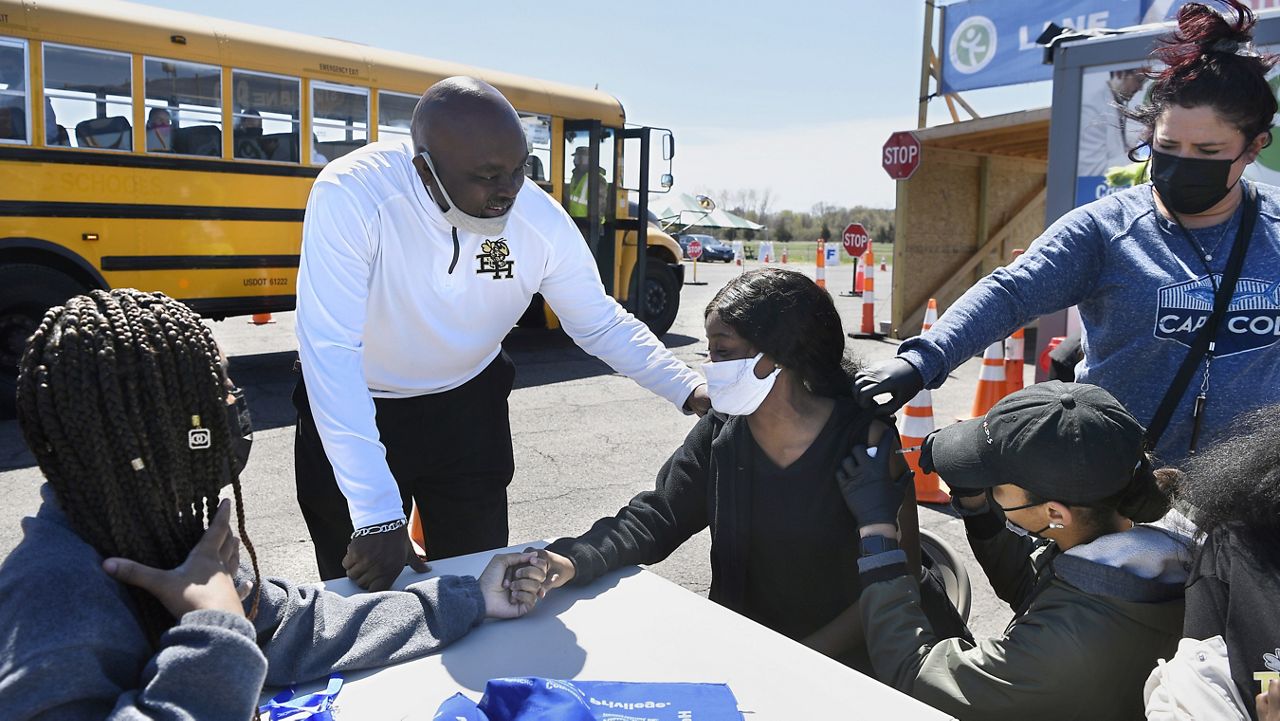The Food and Drug Administration (FDA) on Monday expanded the Emergency Use Authorization (EUA) of Pfizer and BioNTech's COVID-19 vaccine for children 12-15.
“The FDA’s expansion of the emergency use authorization for the Pfizer-BioNTech COVID-19 Vaccine to include adolescents 12 through 15 years of age is a significant step in the fight against the COVID-19 pandemic,” said Acting FDA Commissioner Janet Woodcock, M.D.
“Today’s action allows for a younger population to be protected from COVID-19, bringing us closer to returning to a sense of normalcy and to ending the pandemic," Woodcock added. "Parents and guardians can rest assured that the agency undertook a rigorous and thorough review of all available data, as we have with all of our COVID-19 vaccine emergency use authorizations.”
The Pfizer-BioNTech vaccine was previously approved for use in individuals 16 years and older.
President Joe Biden celebrated the news Monday night in a statement, calling it "a promising development in our fight against the virus."
"If you are a parent who wants to protect your child, or a teenager who is interested in getting vaccinated, today’s decision is a step closer to that goal," Biden continued. "Millions of 16- and 17-year-olds have been safely vaccinated, and as more and more Americans get vaccinated, COVID-19 cases, hospitalizations, and deaths continue to fall."
The president said he will speak more about how this will impact the nation's vaccination program, "but the bottom line is: The light at the end of the tunnel is growing, and today it got a little brighter."
The companies applied for the expanded approval in early April, after publishing data from a Phase 3 clinical trial of 2,260 teens aged 12-15 in the United States. The data showed there were no cases of COVID-19 among fully vaccinated adolescents compared with 18 among those given dummy shots.
Kids had side effects similar to young adults, the company said. The main side effects are pain, fever, chills and fatigue, particularly after the second dose. The study will continue to track participants for two years for more information about long-term protection and safety.
There is an ongoing study into the efficacy of the Pfizer vaccine in as young as six months old to 11 years of age. Pfizer said last week that it will seek authorization for children ages 2-11 in September.
Shots could begin as soon as a federal vaccine advisory committee issues recommendations for using the two-dose vaccine in 12- to 15-year-olds, expected Wednesday.
Vaccinating children of all ages will be critical to a return to normalcy. Most COVID-19 vaccines rolling out worldwide have been authorized for adults. Pfizer’s vaccine is being used in multiple countries for teens as young as 16, and Canada recently became the first to expand use to 12 and up. Parents, school administrators and public health officials elsewhere are anxiously awaiting the shot to become available to more kids.
Pfizer isn’t the only company seeking to lower the age limit for its vaccine. Results also are expected by the middle of this year from a U.S. study of Moderna’s vaccine in 12- to 17-year-olds.
Children are far less likely than adults to get seriously ill from COVID-19, yet they represent nearly 14% of the nation’s coronavirus cases. At least 296 have died from COVID-19 in the U.S. alone, and more than 15,000 have been hospitalized, according to a tally by the American Academy of Pediatrics.
The vaccine from Pfizer-BioNTech was the first to receive EUA in the United States back in Dec. 2020, and is the most widely used of the three COVID-19 vaccines that have received such authorization. According to data from the Centers for Disease Control and Prevention (CDC), the U.S. has administered over 139 million doses of the Pfizer-BioNTech shot, with nearly 60 million Americans fully vaccinated by the two-dose jab.
The Associated Press contributed to this report.



